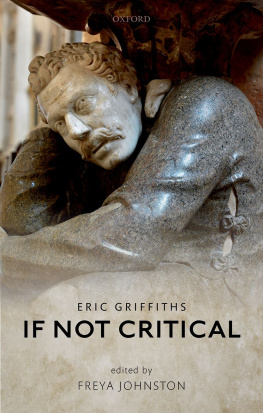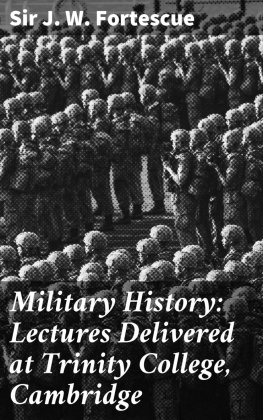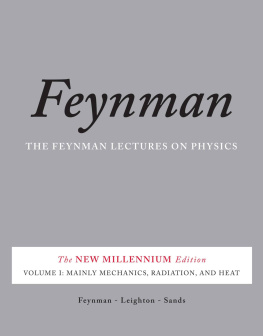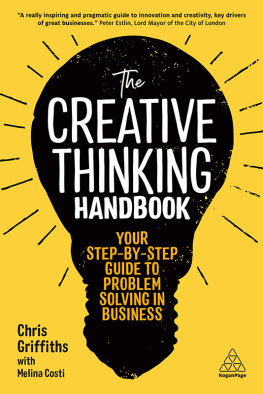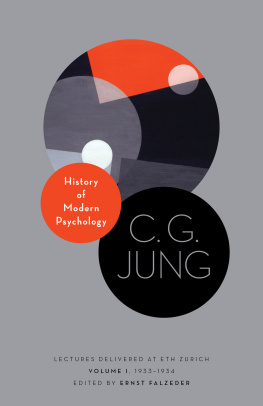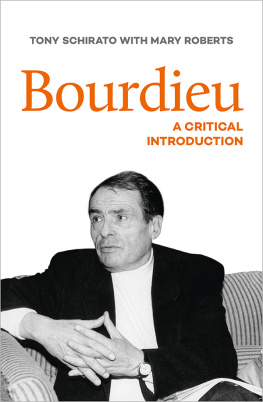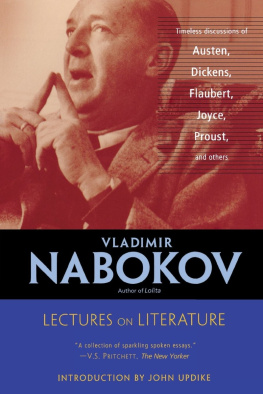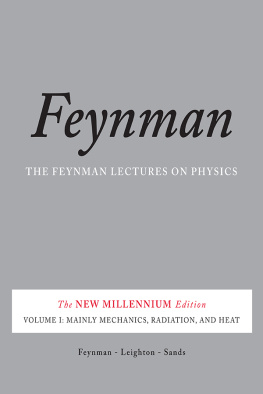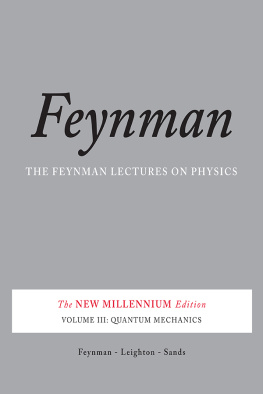References to the Bible are to the King James Version.
References to Shakespeare, unless otherwise stated, are to the First Folio (1623) and are given by act, scene, and line number (in the system of through-line numbering, counting all printed lines continuously from first to last).
All translations, unless otherwise stated, are by Eric Griffiths; footnote references have also been provided to scholarly editions and translations of texts cited in the lectures.
True critics, like true poets, have a way of writing about things before they happen to them, so that their words take on the cast of intimations or apprehensions. Before his speaking voice was cut off by a stroke, Eric Griffiths had spent decades thinking about the sound of words. In The Printed Voice of Victorian Poetry (1989), he wrote:
Print does not give conclusive evidence of a voice; this raises doubts about what we hear in writing but also gives an essential pleasure of reading, for as we meet the demands a text makes on us for our voices, we are engaged in an activity of imagination which is delicately and thoroughly reciprocal.
This book, evidence of a voice and of its absence, started life as hundreds of lectures, here represented by a selection of ten, and as the verses and translations from French, German, and Italian that Eric Griffiths wrote in his spare time, read out, and gave to his friends. Hearing his critical and creative voice in print is now the only way to hear it in something like full flow. Of William Empsons public readings John Wain recalled a very wide range of sheer volume; he shouted some passages like a Neapolitan stevedore, laryngitically croaking others. There were moments of shouting and croaking in Eric Griffiths lectures, too, marinated as they were in cigarettes, watered-down whisky, coffee, and milk. His public voice was fast, sardonic, protesting, and exact. Reading texts aloud with smaller groups of people, he adopted like Empson a much quieter style, though the curious angularity of rhythm and the upturned eyes, a tribal characteristic of Cambridge English, were typically still part of the show.
The title of this book comes from one of Erics favourite dramatic characters, IagoI am nothing, if not Criticall; he registered, time and again, the ways in which literature is touched by and gestures towards a world beyond itself, and that such ways were at best oblique and stylized (Lists). Crammed into his writing are decades of reading in several languages and across most genres and literary periods. He did not remotely speak as if to a group of specialists in the academy; as a result, his work is not sequestered but original, open, and surprising. It has both the comedy and the virtue of observational patience and careful statement (Lists), and it is shot through with the exhilaration of discovery, immediately responsive to the details of what it is describing.
Eric has always loved to read, to argue, and to tease; his prose toys with characters and texts and their audiences, but it also looks the horrors and miseries of real life as well as careless and ill-founded critical orthodoxies in the face. As a critic, he is richly alert to human fallibility, backsliding, and contradiction, and relentless in his pursuit of those who do not or will not acknowledge such lapses and oddities or who knowingly put them, in writing, to one side. His work gathers up hints of unrecounted lives, as he describes them in A rehearsal of Hamlet, echoing Wordsworths little, nameless, unremembered acts / Of kindness and of love. It points towards what might have been left out of an account of literatureperhaps especially towards those who cannot read what is written about them, and those whose existence is suggested by rather than included in a text. Eric Griffiths pursues the blind spots not only of other peoples arguments, but of the whole business of criticism in general, with what he calls its over-concentration on a narrow range of examples such over-concentration warps our thinking (Beasts). Implicit and explicit throughout his work is the argument that an appropriately wide range of instances is essential to making progress in conceptualization; that what we need, in order to do better thinking, is a keener attention to a greater variety of examples (Beasts). The following chapters show how such attentiveness might work in practice. Take the handling of theorists who assert the absolute centrality of laughter to comedy, in reply to which Eric Griffiths inquires after all those other expressions of a comic sense: the snigger? the wry smile? the twinkle? the gloating cackle? the insult? the raised eyebrow? the limp wrist? and particularly, that intriguing and central comic abstention from expression, the poker-face? (Beasts).
All these expressions and more punctuated his lectures, which were brilliant performances; they demonstrated criticism in action. He rehearsed his disagreements both mildly and heatedly, verbally and physically, but without enforcing his views on the audience. He often confessed quite openly that such differences as he had with other writers would need to be left unsettlednot just by him, but by the limits of what criticism as a discipline might achieve. One thing it could reasonably and usefully attempt, as Eric showed over and over again, was to check us in our assumptions. It might also help to revivify something lost or gone cold:

